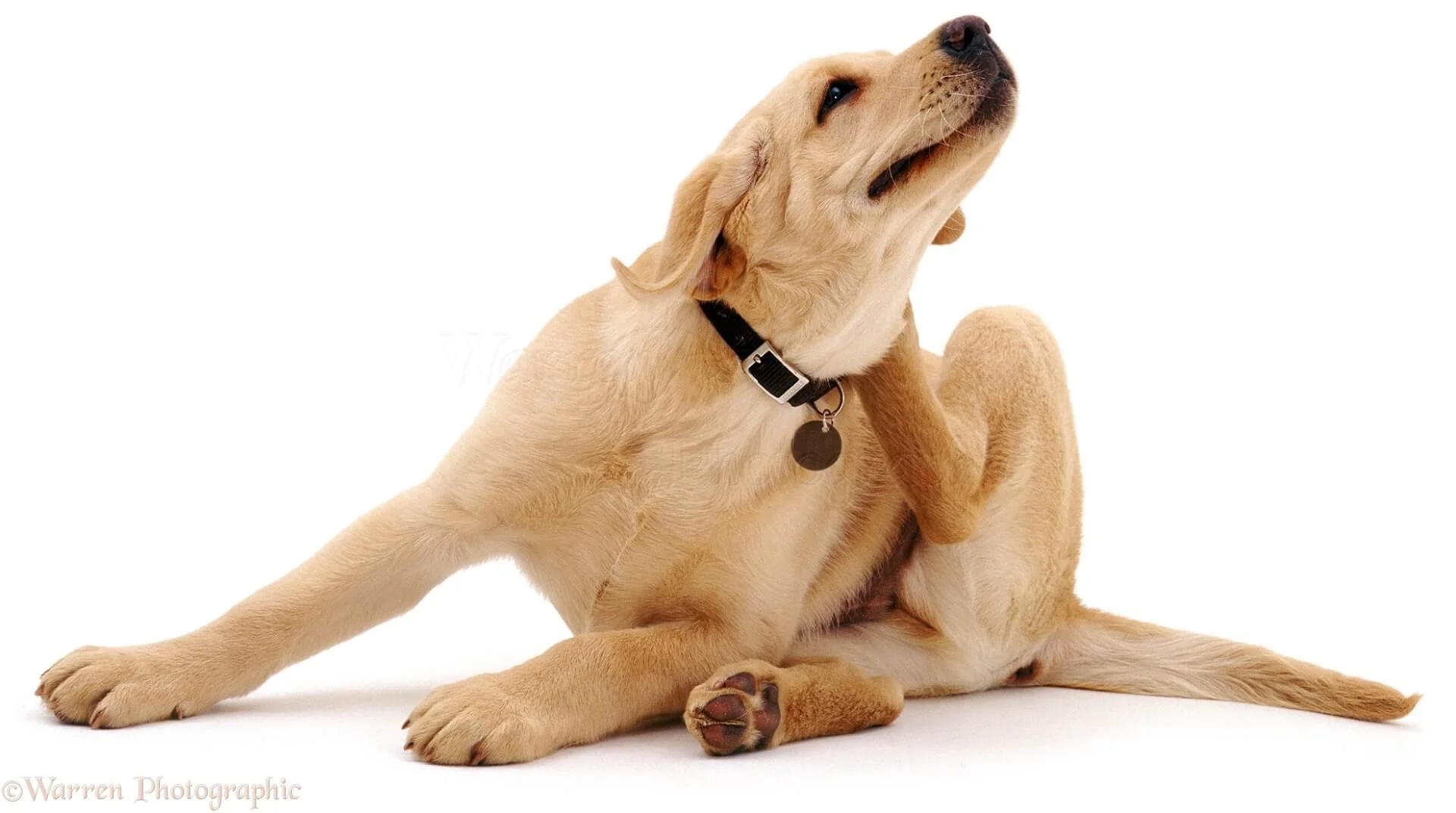Help! My Dog's been Skunked!
Spring is here, the season of singing birds, budding trees, blossoming flowers and skunks!?! Dogs are curious by nature and if they cross paths with those adorably striped creatures, they will unfortunately come out of the chance encounter not smelling so sweet.
Why and What do Skunks Spray?
Skunks are crepuscular, meaning they are active mainly at twilight, dawn and full moon (dimly light) nights. They have a strong sense of smell and hear well, but do not see very well. They do, however, have very good aim with their offensive scent.
The scent glands are similar to dog and cat anal glands. They are located on either side of the anus and produce an oily secretion containing sulfur compounds (mercaptan).
Skunks are adept as using their scent glands as a weapon against predators, however spraying is not their first line of defense. They will engage in a series of displays to ward off potential attacks before spraying. If a skunk feels threatened, they will hiss, stamp their feet and raise their tail as warning signs. A mother skunk with kits may spray offensively.
Tips – Do the following before bathing your skunked dog
Before handling your dog, you may want to put on some old clothes. Skunk spray is actually an oil and is very difficult to remove from clothing.
If possible, leave the dog outside to prevent the odor-ridden oils from getting into your house.
Determine where the spray hit the dog. Depending on your dog's hair type, you may be able to trim away or comb out some of the affected hair. If you think your pet was sprayed in the face, flush your pet's eyes copiously with clean water, ideally with sterile saline solution (Note: Please use saline eye wash intended for use within your eyes and not for contact lenses.)
Use paper towels to soak up the oils from the coat before you begin washing. Be careful not to spread the oils from one part of the dog to another. Only wipe where the oils are already to avoid making the problem worse.
When you're ready to wash the dog, only clean the sprayed area. Skunk spray is oily and can easily be spread all over the dog. You will most likely have to give the dog more than one bath, so save an all-over bath until the second or third washing.
How do I get rid of skunk smell on my pet or myself?
It may be particularly difficult to get the odor out of dogs with thick coats. If you don't act fast, it may be possible to smell the odor on your dog for up to two years, especially when the dog gets wet.
It is best to bathe your dog with a pet safe shampoo before the skunk's sulfuric spray dries on the fur. After bathing you can try some of the following methods.
Household Products
Paul Krebaum, a chemist, developed a more effective formula for de-skunking a dog. Mix in an open bucket or bowl, and DO NOT store any left over solution:
1 quart of 3% hydrogen peroxide
¼ cup baking soda
1 teaspoon of strong liquid soap such as dish washing detergent
Mix the ingredients in an open bucket or bowl. The mixture will fizz. Wet your dog and thoroughly massage the solution into the coat. Be sure to keep the mixture out of the dog’s eyes, nose and mouth. If it is necessary to apply it to the dog’s face, very carefully use a washcloth or a sponge. After applying the mixture to all parts of your dog that may have been sprayed, rinse the dog thoroughly.
CAUTION: Do not mix and/or store ahead of time as the mixture may explode!
2. Store Bought De-Skunking Products
There are several products you can buy at the store to de-skunk your dog like Envirofresh Odor Out. It eliminates skunk odors and is safe to use on your pet, in your laundry, and in the air!
3. Professional Dog Groomer
Better yet, leave it to the professionals! Take your dog to your qualified groomer where they can rid your dog of the unpleasant odor left by skunks. Using a medicated skunk bath that will shampoo, condition, deodorize and leave your dog's coat with a radiant sheen!
Learn more about optimizing your pet's wellness below:
Resources
http://www.dogbreedinfo.com/skunk.htm
http://vetmedicine.about.com/od/veterinaryqa/a/Skunks.htm







